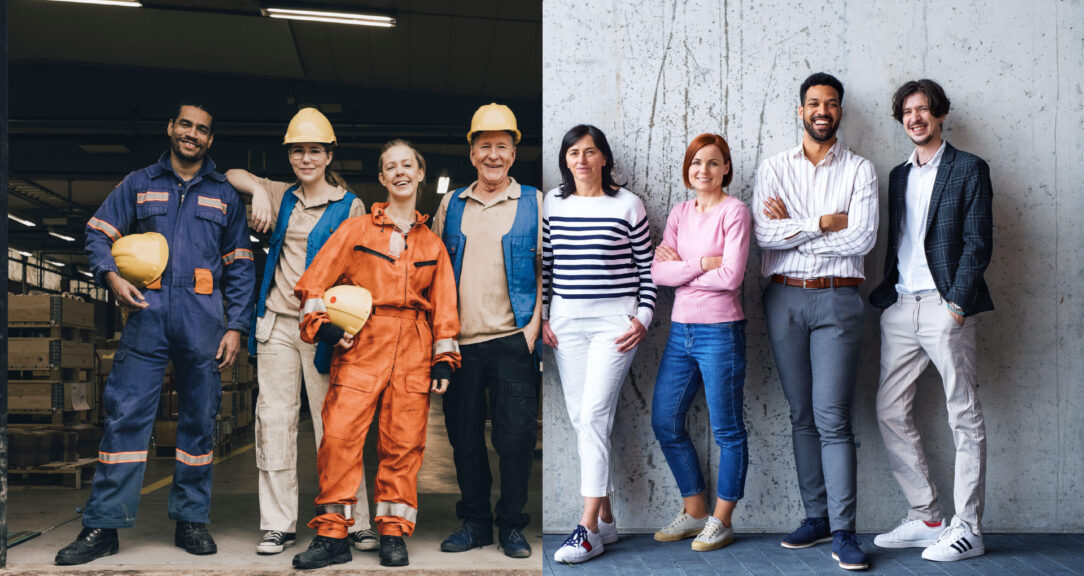With Kombucha on tap in the office cafeteria, free massages during lunch breaks, and vouchers for services ranging from bike-sharing subscriptions to online therapy, some employers seem to be doing everything they can to win talent and bring employees back into the office. But are more and more perks the best way to attract and retain talent?
“In a cost-of-living crisis, free massages aren’t going to do the trick.”
Dr. Zofia Bajorek
Perks aren’t necessarily going to bring employees back into the office. Over the past few years, many employees have realized they can be just as productive — if not more so — when working from home. With the additions of the cost-of-living crisis, monetary compensation such as increases in salary (as well as improved flexibility) may be the priority for people in the workforce anyway.
Benefits are, of course, something that can attract people to a certain company, but what’s ultimately going to make the difference and sustain talent retention is employee recognition, which can be expressed through their salary and the rewards you’re giving people for the effort they’re displaying. Ultimately, employees want to be valued for their work, recognized for their contributions, and given opportunities for advancement and growth. Evidence suggests that focusing on these good work practices has more long-term impact on well-being and organizational outputs than perks such as free yoga sessions.
People want to be heard, to be appreciated and to find meaning in their work.
I believe we need to reframe what we mean when we say “employee benefits” and what employers want to get from providing benefits. Employers need to take a holistic approach to work. This is really the key when it comes to employee retention and well-being. Giving employees the right resources so that they can do their job well, upskilling them, making sure their individual skills are used effectively in the workplace, congratulating them, paying them a competitive wage, and giving them a voice — I see these things as employee necessities. People want to be heard, they want to be appreciated, and they want to have meaning in their work.
If organizations try to think a little bit more holistically about what they’re offering their staff in the first place, they’ll be able to create a better working environment. If you’ve given somebody a good job to do, they will do a good job.
Instead, what I sometimes see is companies offering perks and benefits they believe to be attractive to employees, but these may fall flat if they are not what employees want or need, and are not implemented well. There are many instances where employees aren’t consulted about the benefits on offer, leading to dissatisfaction and frustration with their employer. For example, not everyone wants or will benefit from a gym membership, and head massages won’t have any effect if managerial pressures and being constantly overworked are still part of someone’s workday. Employees caring for young children or elderly relatives would probably prefer flexible leave and well-implemented and managed work-from-home policies instead of employee benefits they may not have time to engage with or benefit from.
So employers are wasting resources by offering benefits that aren’t even what their employees want or need.
Ultimately, it’s about hearing what your employees are saying. I’m not against perks per se, but they aren’t the answer to everything when it comes to improving well-being, talent attraction and retention. Instead, employers should be thinking about what issues their employees might be facing — a cost of living crisis, a heightened need for work-life balance that emerged during the pandemic, a desire for meaningful work — and divert resources towards addressing that instead of offering complementary sound baths.
“Benefits can create an experience competitors can’t easily replicate.”
Poonam Chopra
Finding that sweet spot between compensation and benefits is the true challenge. I think compensation is what gets people through the door, but it’s the quality of the benefits that convinces people to stay. The experience that you create for your employees is what will differentiate you from competitors.
From a strategic point of view, I believe in offering employees a chance to personalize their benefits and choose the perks that work best for them. Sure, you could do a 5% bonus or five additional days of leave. But your competitors can offer the same thing. Instead, if you offer a range of benefits that employees can pick and choose from, you’re creating an experience that cannot easily be replicated elsewhere.
This is going to be a true driver for retention, especially for new talent. They’re not looking for run-of-the-mill benefits, they’re looking for something that’s tailored to their specific interests and needs. We call these people-centric rewards.
Gone are the days when a company had one set of benefits and applied them to their entire workforce, regardless of gender, age or family status. Some people with children might prefer school fee reimbursements, while others who are caring for elderly parents may want more comprehensive medical insurance coverage. Young, single employees may find that they’re more interested in gym memberships or additional paid vacation days. Wellness-conscious employees may appreciate free Pilates classes or meditation sessions.
These are benefits that go beyond compensation and are hyper-personalized. Employees create their own “wallet” of benefits and trade off those that aren’t as relevant to them in their current life stage.
These are benefits that go beyond compensation and are hyper-personalized.
This goes back to what I was saying about creating experiences. This is an experience that someone else cannot replicate so easily because it comes with a lot of commitment and budgetary considerations. Some companies might say they don’t have the budget to offer these kinds of personalized benefits, but it’s not necessarily about spending more. Instead, it’s about managing your existing budget to offer a higher ROI. You’re not spending more, you’re just restructuring the benefits you do have and creating a wallet where employees trade down on benefits they don’t need and instead select those that best suit their current preferences and life stage.
Some employers may be trying to use certain perks to lure employees back into the office, but I think this is another area where a more strategic approach is helpful. First, I think smart organizations have already caught on to the fact that there is an alternate way of working that doesn’t include being in the office five days a week. But if there is a specific need to get people together in the same space, then it’s key to provide employees with an experience that they can’t replicate at home.
Something that’s worked for us, for example, is “bring your kid to work” days. People were so excited to bring their kids to work, to have that face-to-face interaction, and have children see where mom or dad work. Employees will remember these kinds of experiences and value them.
So, yes, perks and benefits matter — it’s just a matter of utilizing them strategically and focusing on personalization to deliver people-centric rewards.
What do you think? Join the debate by letting us know your thoughts.
Read more
Sign up to keep up to date with ReThink Q.








